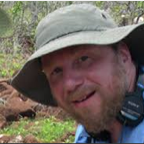Call to action
The humanities are starting to look like an endangered species. Universities from Alberta to Jerusalem are slashing languages and arts departments, while this fall the US House of Representatives is considering a 49% cut to the National Endowment for the Humanities. A society that devalues history programs and preservation initiatives seems in danger of neglecting its past and its future.
Yet it’s not just academic programs that are endangered by current trends. Long-established industries like music and journalism are losing economic footing in the Internet age, and the ecosystems underpinning life across the planet are beginning to collapse under the weight of global development and climate change. As bookstores and Pacific islands sink under the rising tide of electronic and economic globalization, how can humanists influence what rises to take their place?
This is the central question of Surfacing, this year’s Digital Humanities Week. Rather than focus on the crisis facing the humanities, or erect a defensive barricade against the rising tide of criticism facing the ivory tower, Surfacing invites participants to play down the humanities’ will to survive and give prominence to the survival value of the humanities.
In this context, new media are more than a means of reanimating hidebound academic research. Though originally developed by scientists, these tools hold out the promise of real-world intervention informed by the aesthetic sophistication, multicultural perspective, and nuanced ethics of artists and scholars in the humanities.
Format
Consistent with the Surfacing theme, the conference will follow a bottom-up dynamic as Maine’s first THATCamp (The Humanities And Technology Camp). Participants will be invited to register their interests online in advance to make face-to-face networking easier at the event.
At the beginning of the week, presentations by distinguished guests will chart a variety of possible topics, including:
- Literature and History
- How digital techniques like metadata analysis and visualization dig deep into texts and other scholarly material to dredge up new meanings.
- Political science
- How mobile apps wielded by Latino tenants in Los Angeles or rainforest hunter-gatherers in Cameroon expose local injustice, putting politics literally in the palm of your hand.
- Geography
- How undersea cables that enable a global Internet impact the communities surrounding their beachheads.
- Art
- How, despite its transition from an emulsive surface to a digital screen, photography continues to play a role in bringing global transformation to light.
- Sustainable design
- How tearing up lawns to plant gardens and daylight water can replace decorative surfaces with life-giving ones.
Participants will then decide the midweek agenda democratically, breaking into ad-hoc teams to share ideas about better ways to distribute knowledge. Over the week, each team will turn the best of their ideas into tutorials that can take the form of textual instructions, how-to screencasts, or badge-enabled interactive tutorials.
Sponsored by the New Media Department Correll initiative, the UMaine Humanities Initiative, and the Cultural Affairs/Distinguished Lecture Series.




 Anne Collins Goodyear (Co-director, Bowdoin Art Museum) is former curator at the Smithsonian's American Art Museum. As president of the College Art Association she presided over its first THATCamp in 2013.
Anne Collins Goodyear (Co-director, Bowdoin Art Museum) is former curator at the Smithsonian's American Art Museum. As president of the College Art Association she presided over its first THATCamp in 2013. Ari Epstein (Terrascope, Civil and Environmental Engineering, MIT) devises innovative settings for project-based, team-oriented education, from youth radio to exhibition design.
Ari Epstein (Terrascope, Civil and Environmental Engineering, MIT) devises innovative settings for project-based, team-oriented education, from youth radio to exhibition design. Nicole Starosielski (Media, Culture, and Communication, NYU) focuses on the global distribution of digital media, most recently on how transoceanic cables from telegraph to Internet have affected the geopolitics of islands and coasts. Her new media project Surfacing inspired the conference's title.
Nicole Starosielski (Media, Culture, and Communication, NYU) focuses on the global distribution of digital media, most recently on how transoceanic cables from telegraph to Internet have affected the geopolitics of islands and coasts. Her new media project Surfacing inspired the conference's title. Andrew Stauffer (Department of English, University of Virginia) is renowned as a digital historian of 19th-century literature and for his leadership of NINES (Networked Infrastructure for Nineteenth-Century Electronic Scholarship).
Andrew Stauffer (Department of English, University of Virginia) is renowned as a digital historian of 19th-century literature and for his leadership of NINES (Networked Infrastructure for Nineteenth-Century Electronic Scholarship).


